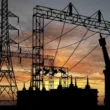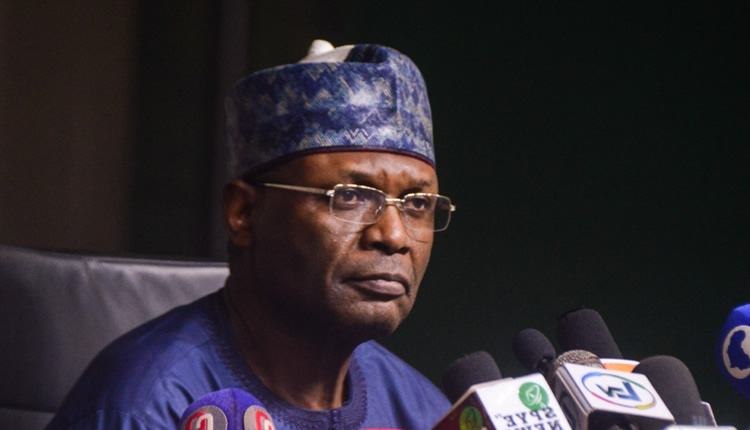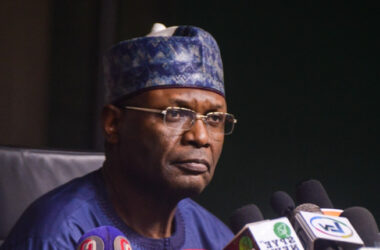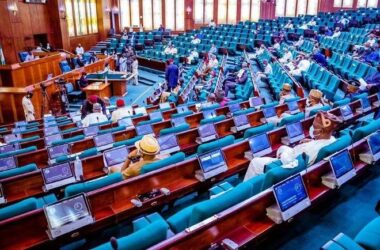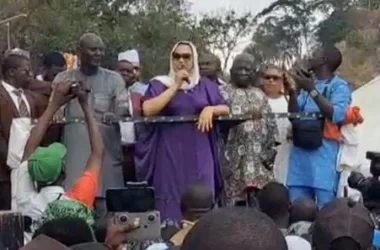There are growing concerns over the future of Nigeria’s Independent National Electoral Commission (INEC) as the tenure of its current chairman, Professor Mahmood Yakubu, comes to an end in November.
With the 2027 elections approaching, discussions are heating up over who will take over the commission’s leadership and what that could mean for the credibility of Nigeria’s electoral process.
While President Bola Ahmed Tinubu is not directly leading the effort to install a new INEC chairman, forces operating outside the Aso Rock Presidential Villa are reportedly pulling the strings. These influential figures, many of whom are close allies of the President, are believed to be working behind the scenes to ensure that a politically favorable candidate takes charge of the electoral body.
Reports suggest that a former governor from the South-South region is playing a key role in the search for Yakubu’s replacement. Alongside him, other top political figures within the government are said to be pushing for a candidate who would be more open to political influence rather than ensuring free and fair elections. The concern is that some of the individuals being considered have previously served as National Commissioners or Resident Electoral Commissioners (RECs) but did not earn a strong reputation for independence or competence.
Nigeria’s history of controversial elections has made the appointment of the next INEC chairman a topic of national concern. With the 2003 and 2007 elections widely criticized for irregularities, and even the 2023 elections still facing scrutiny, the decision on Yakubu’s successor is seen as critical to the future of democracy in the country.
The Nigerian Constitution provides a clear process for appointing the INEC chairman. Section 154(1) and (2) states that the President must consult the Council of State before making a nomination, and the Senate must confirm the appointee. Additionally, INEC leadership is expected to be composed of individuals with unquestionable integrity, without ties to any political party. However, past appointments have raised concerns, as ruling party members have sometimes been given positions within the electoral body.
A similar controversy erupted in 2015 when former President Muhammadu Buhari appointed Amina Bala Zakari as acting INEC chairman, bypassing expected internal succession protocols. The decision sparked accusations of favoritism, leading to months of political debate before Professor Yakubu was finally confirmed as the substantive chairman.
Now, with just months left before a new appointment must be made, political analysts argue that President Tinubu must be cautious in his decision. His administration has a chance to restore public confidence in the electoral system by appointing someone known for fairness and independence.
According to sources within Aso Rock, the President is aware of the stakes. One insider told PUNCH, “His declaration that NYSC members should be used to support the conduct of the coming census is not just about saving cost alone but about ensuring credibility of the process. It is the same way he is looking at the appointment of who will succeed Professor Yakubu.”
Observers note that past Nigerian leaders who ensured credible elections, such as former President Goodluck Jonathan and General Abdulsalami Abubakar, continue to receive international recognition for their roles in strengthening democracy. Tinubu now faces a similar opportunity to define his legacy by ensuring the 2027 elections are free from political interference.
Despite recent improvements in Nigeria’s electoral laws, the success of elections still depends heavily on those in charge of implementing them. Cases like the prosecution of university professors for electoral fraud in Akwa Ibom and Abia contrast with incidents such as the Adamawa governorship election, where a Resident Electoral Commissioner unilaterally announced results in violation of electoral guidelines. These events highlight the need for a strong and independent INEC leadership.
The declining voter turnout in Nigeria further underscores the public’s loss of trust in the electoral process. While voter participation stood at 52.3% in 1999, it dropped to just 26.7% in 2023. Many Nigerians feel that their votes do not count, pointing to election-day violence, logistical failures, and a general lack of trust in INEC as key reasons for their disillusionment.
With five months remaining before Professor Yakubu’s tenure ends, the pressure is on President Tinubu to make a decision that will shape the country’s democratic future. Whether he appoints a truly independent chairman or allows political considerations to dictate the selection will be a defining moment for Nigeria’s electoral system.



